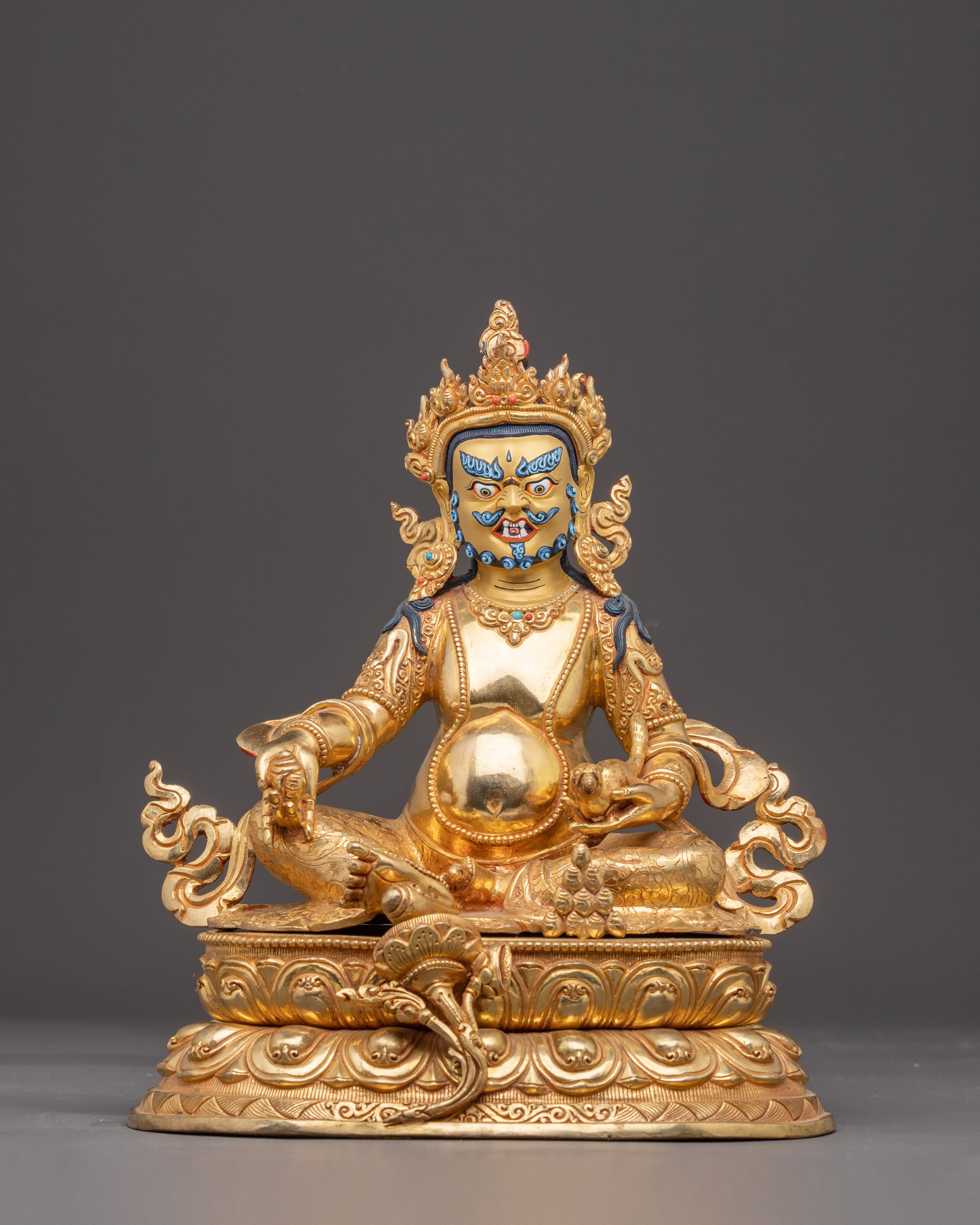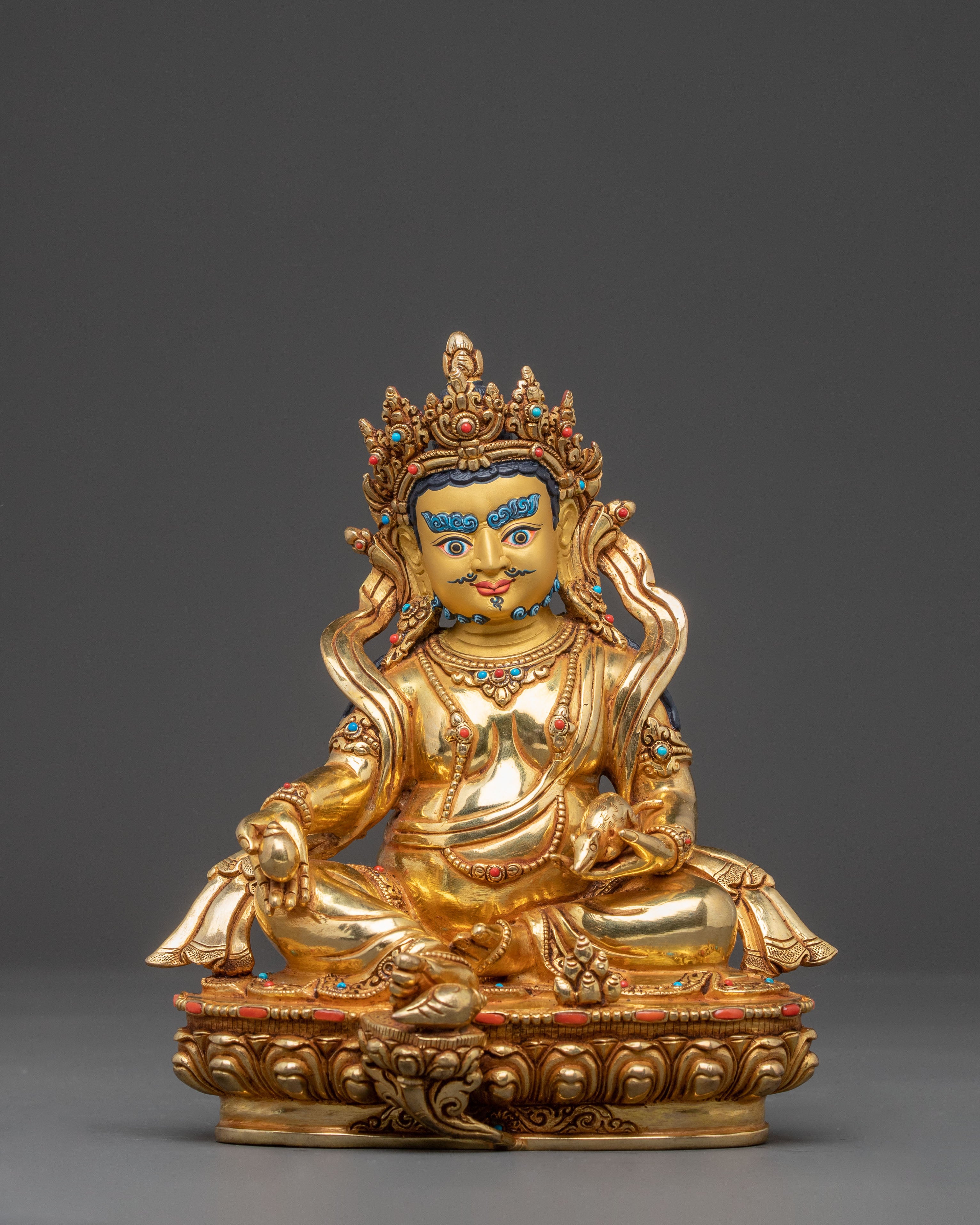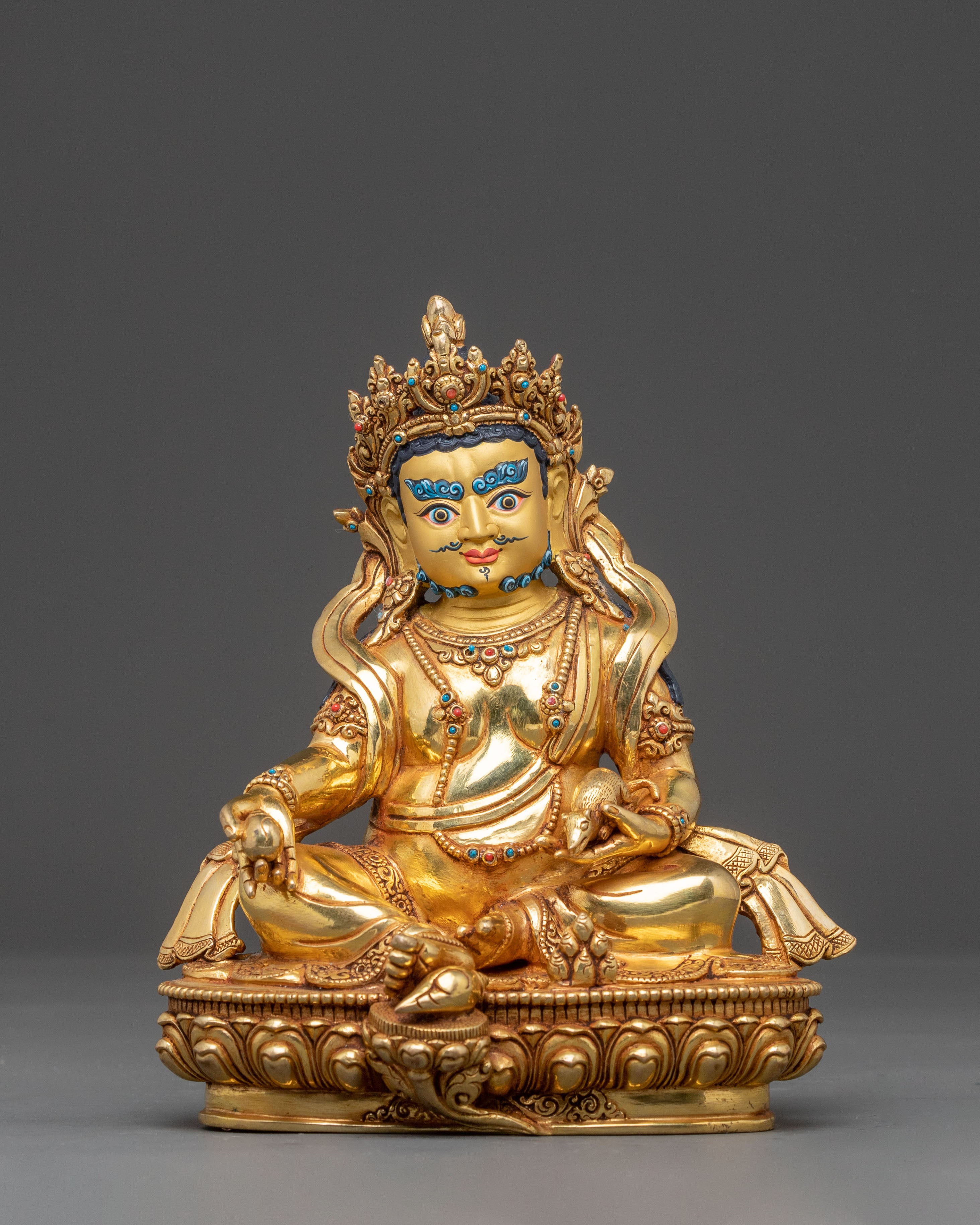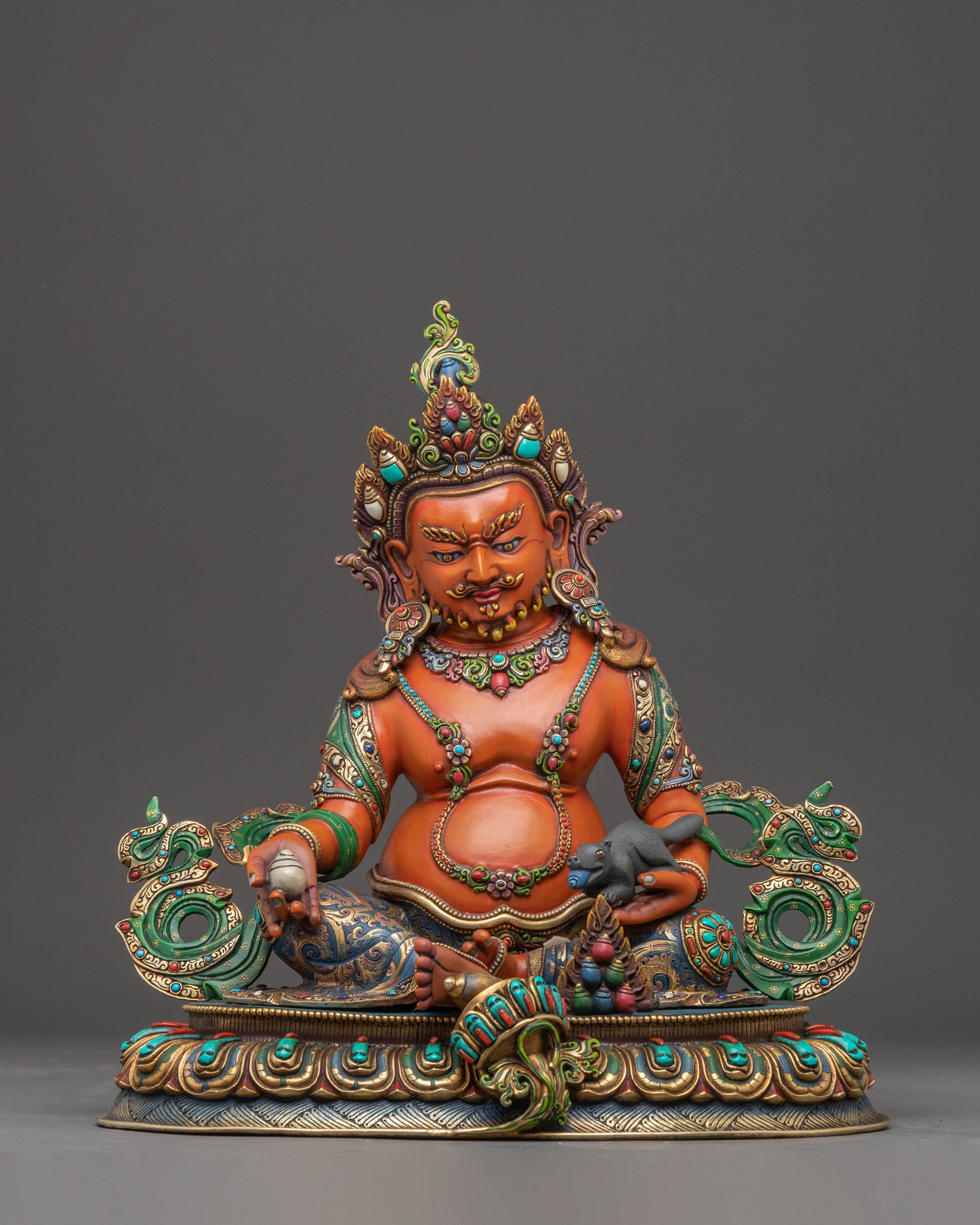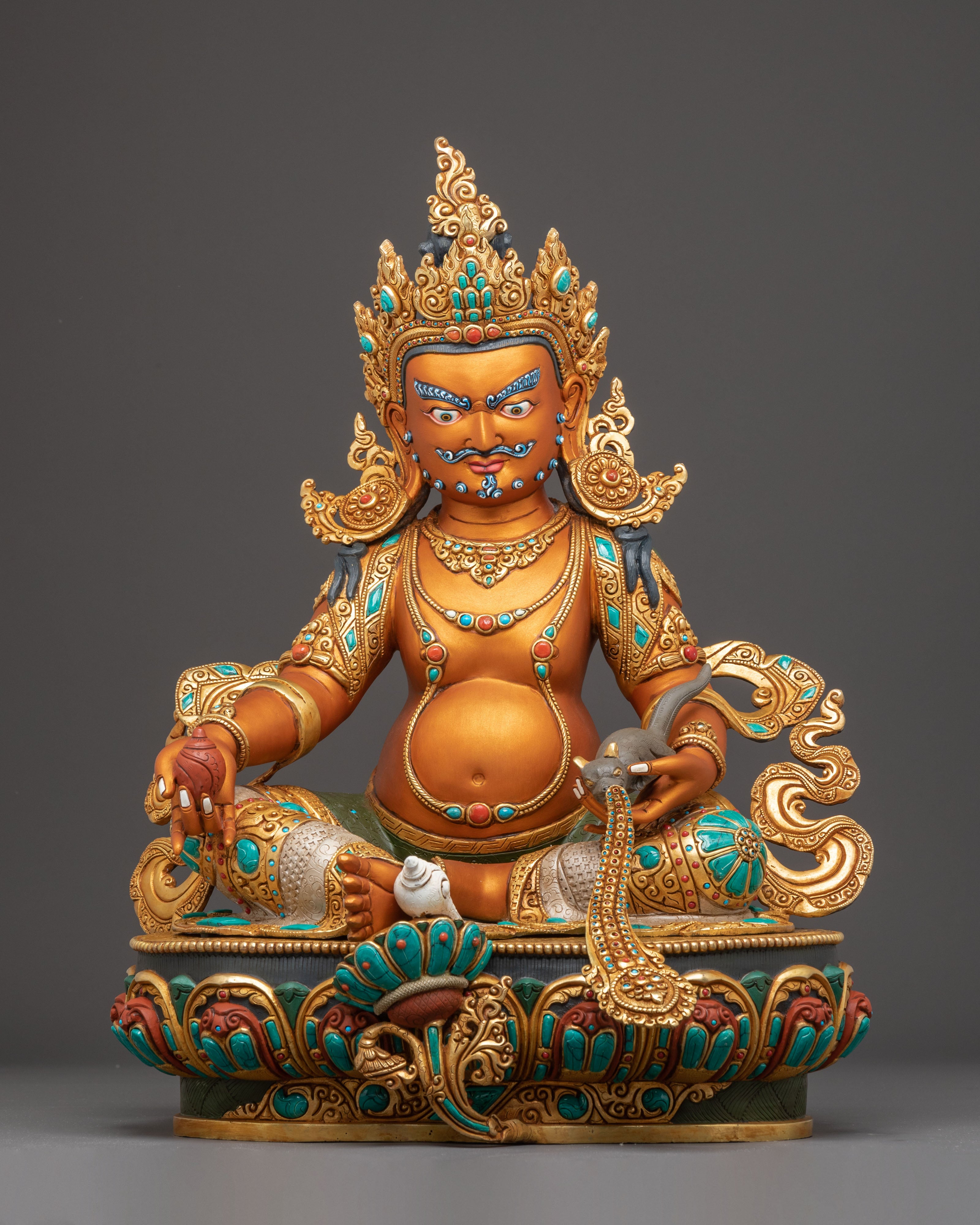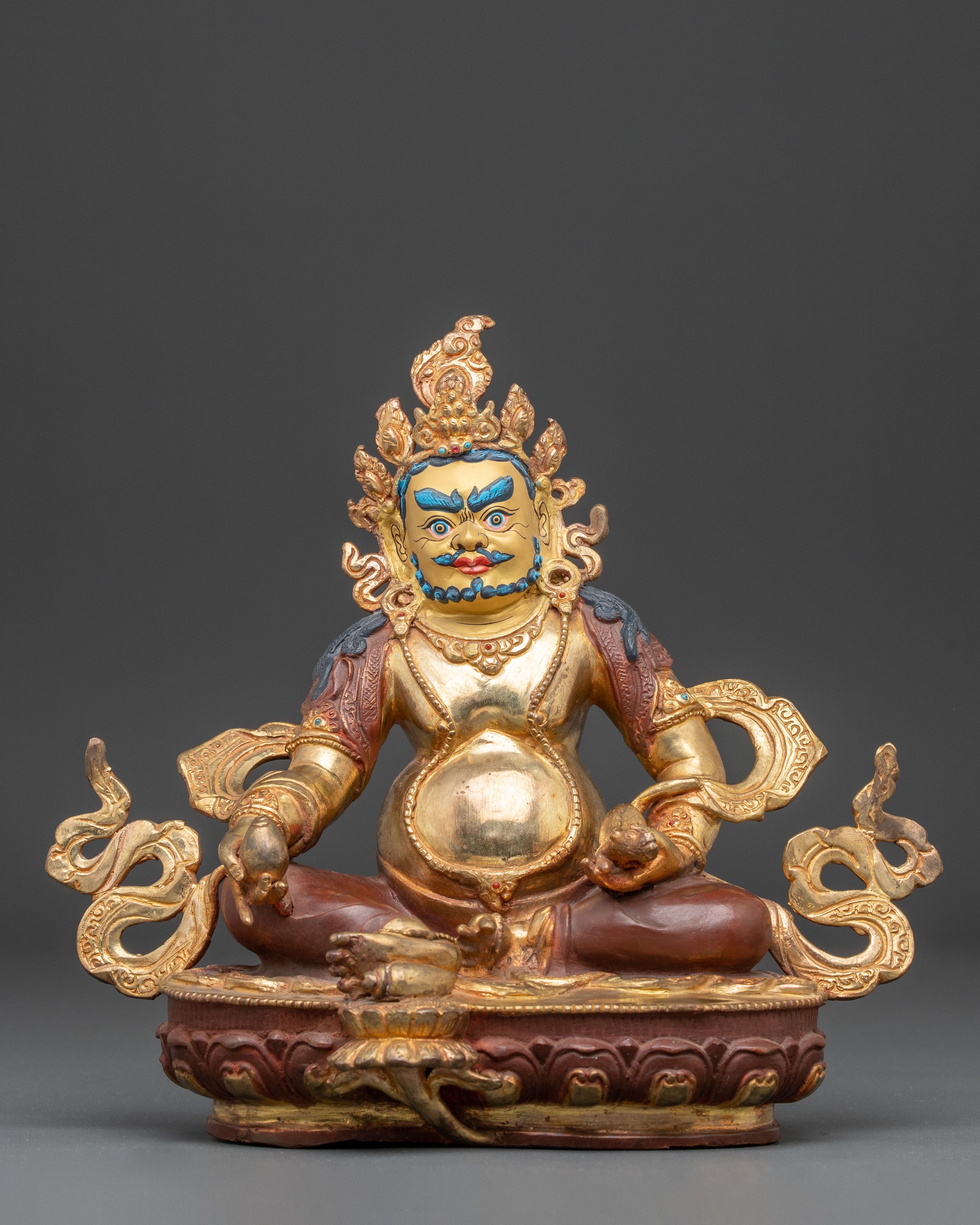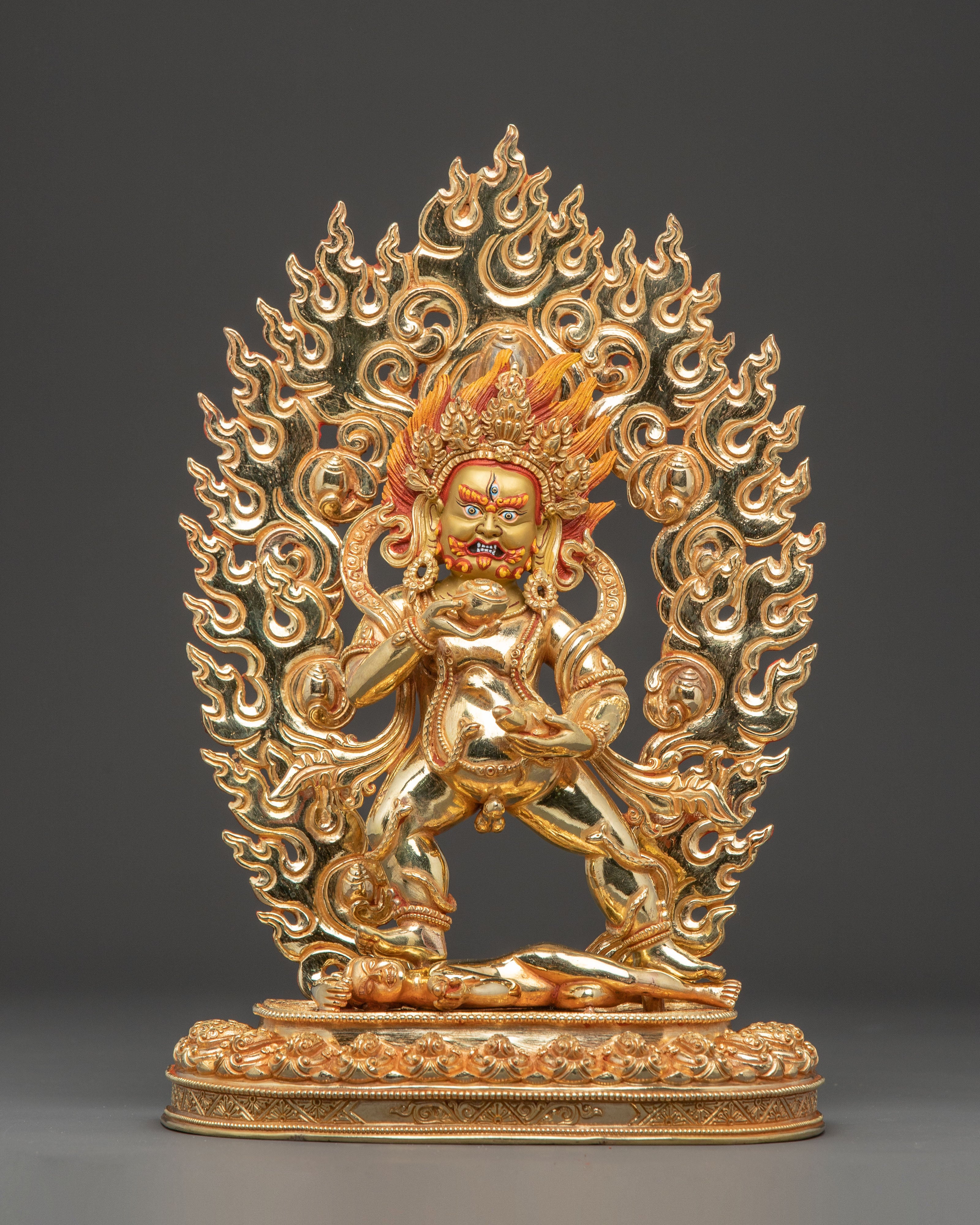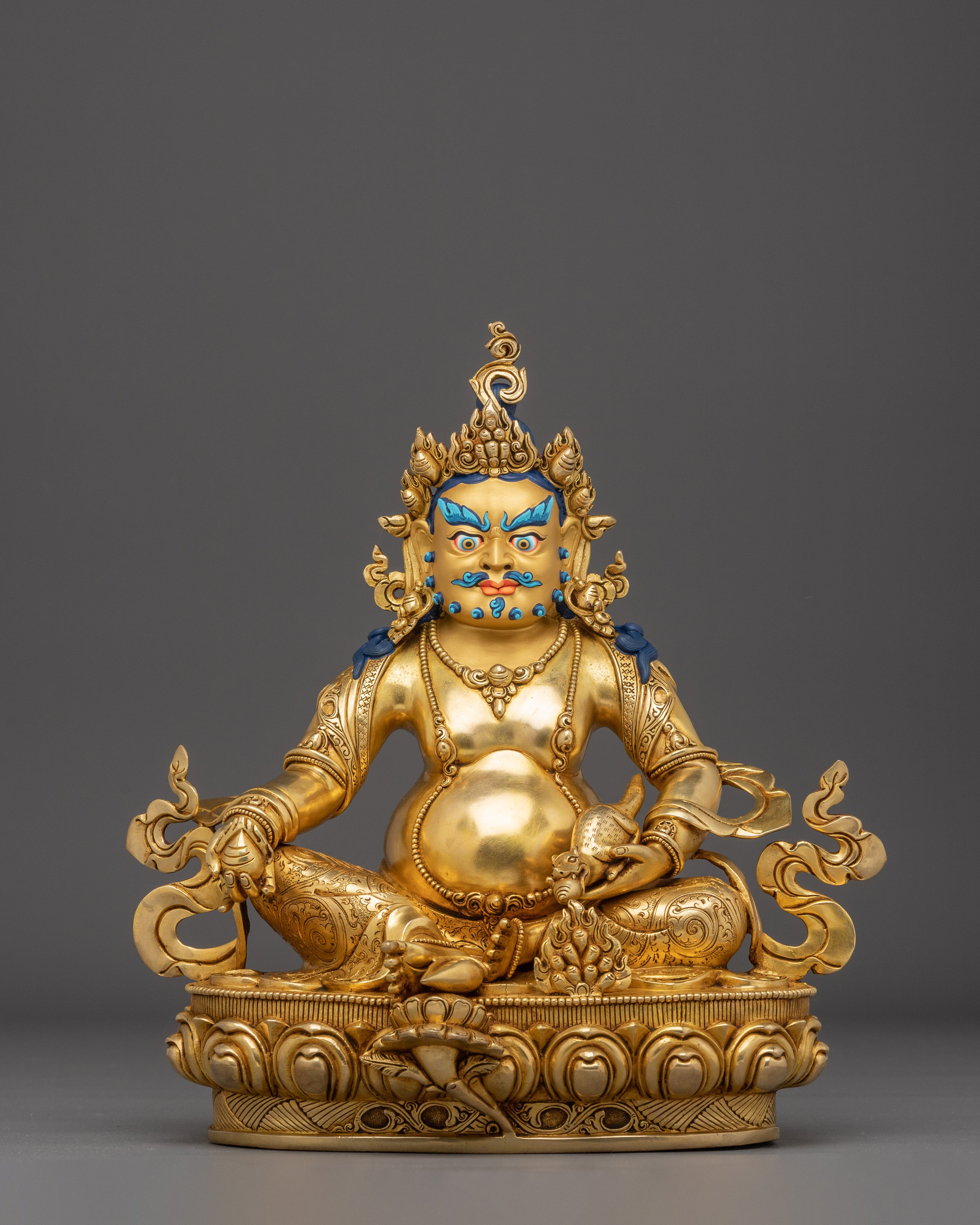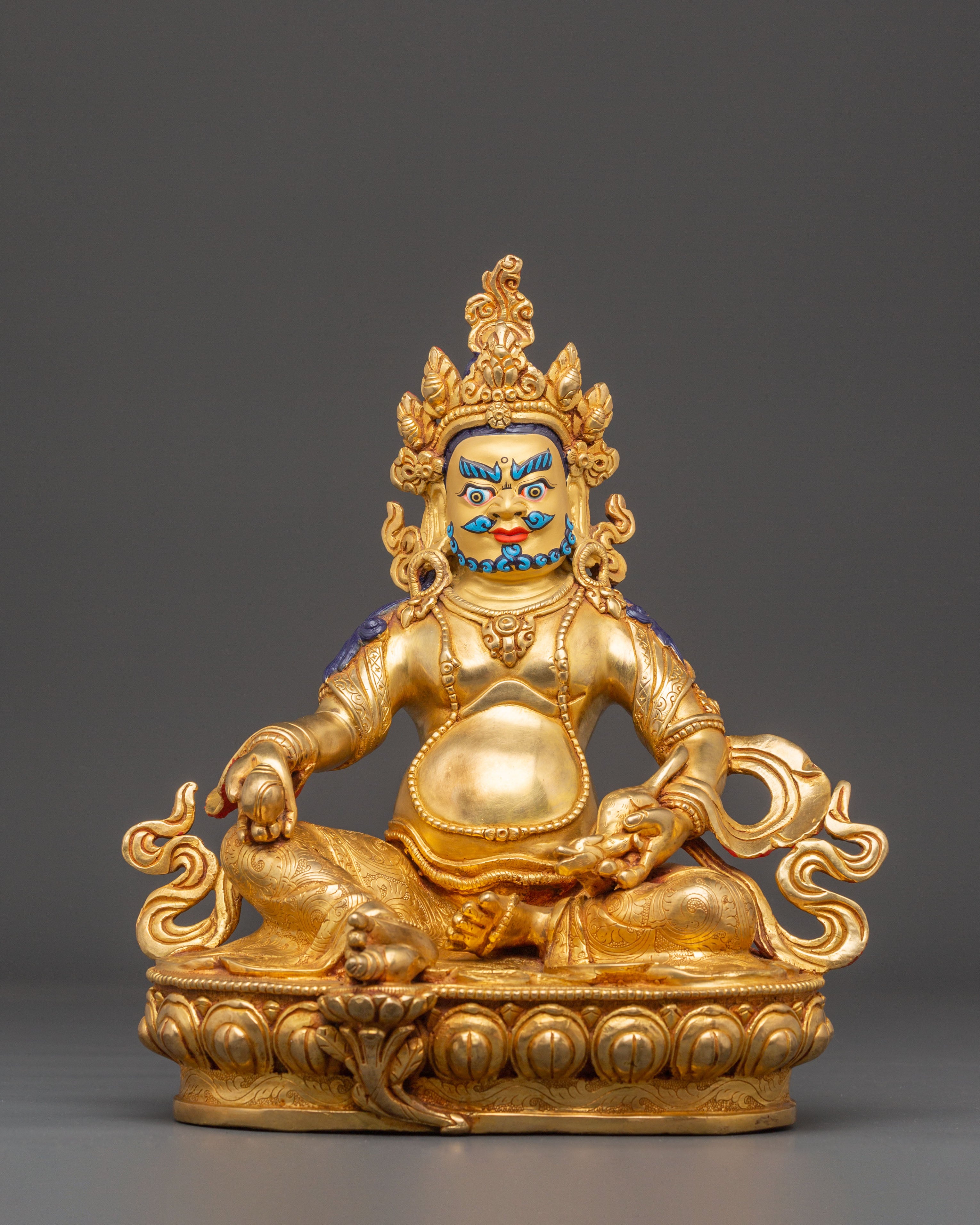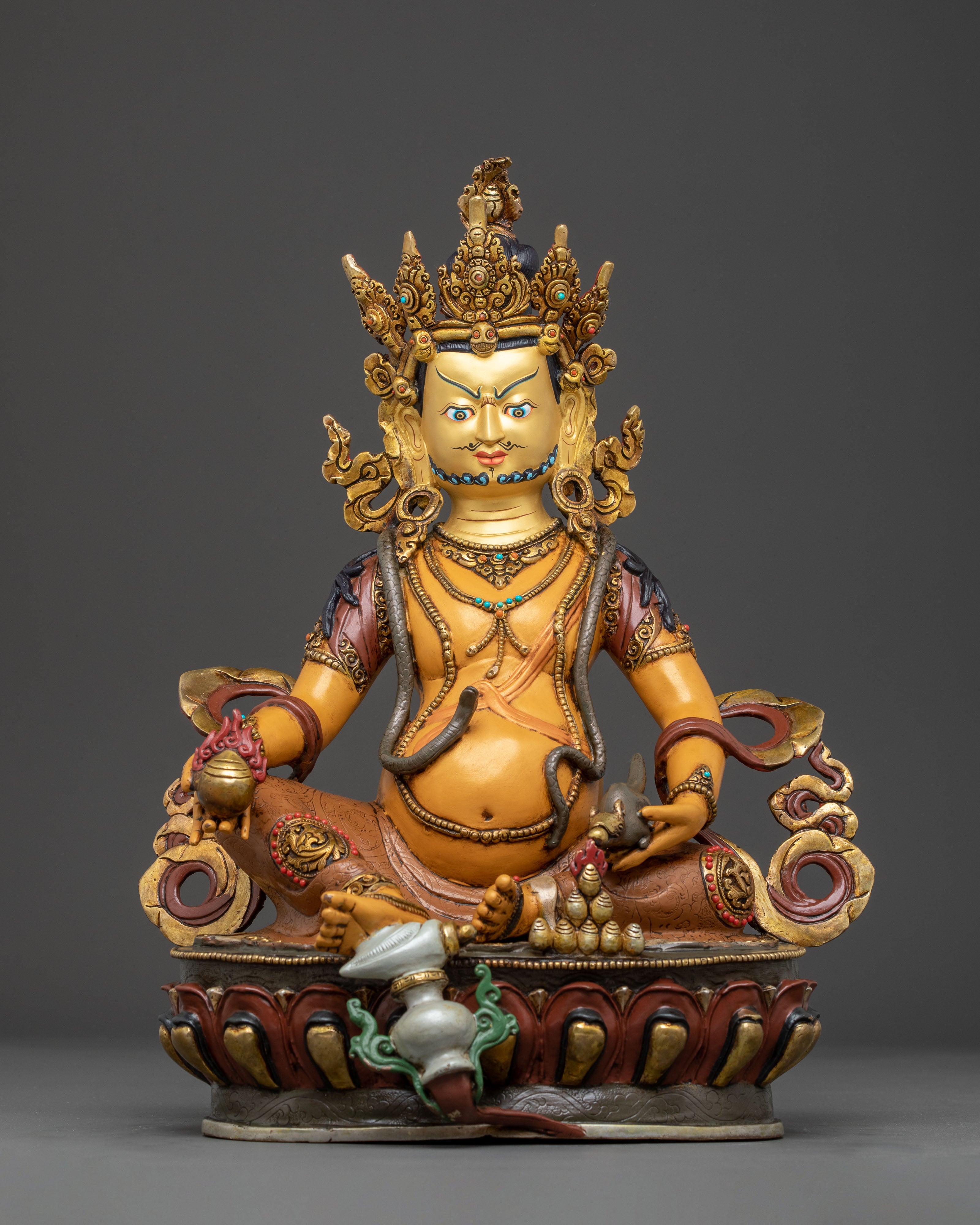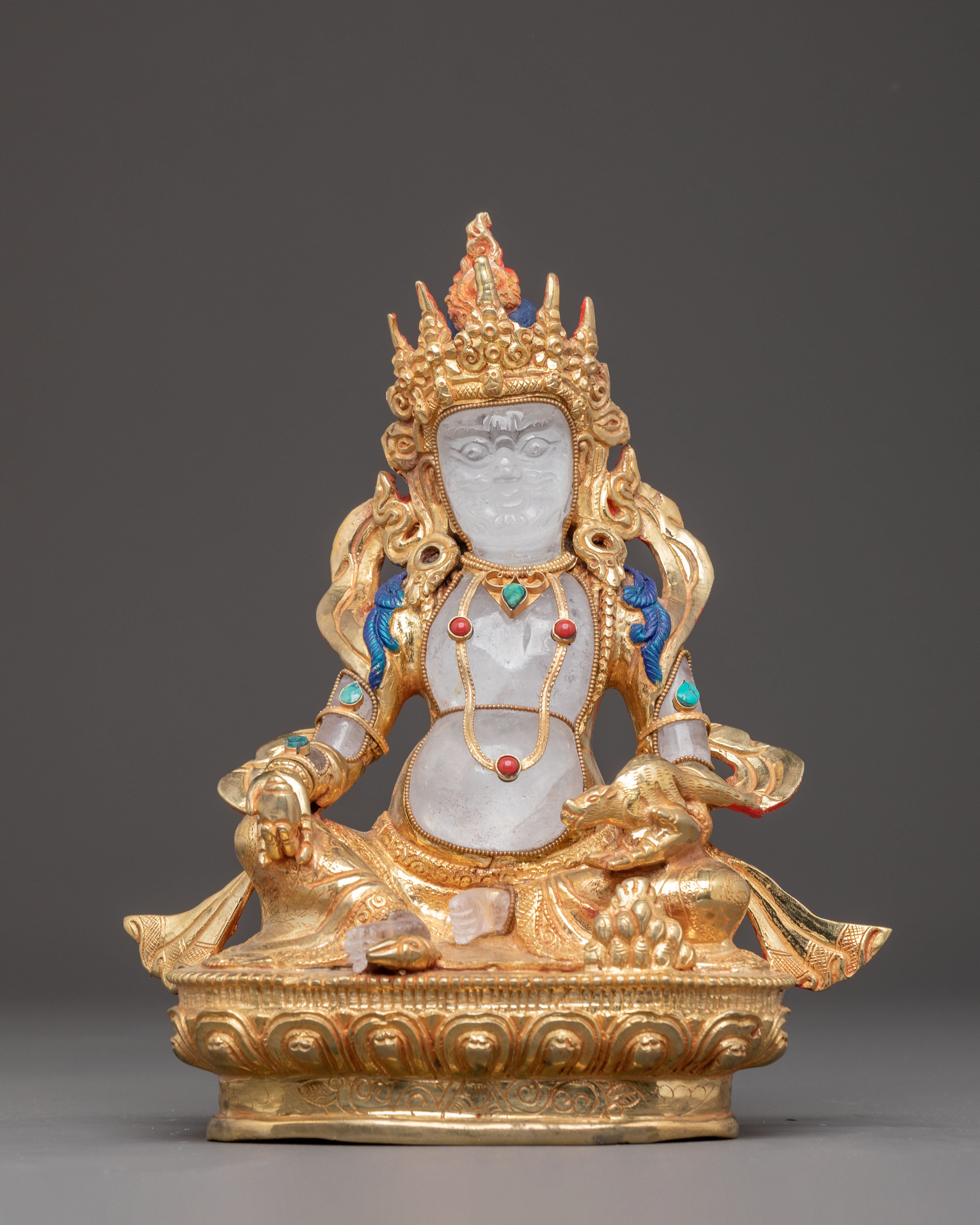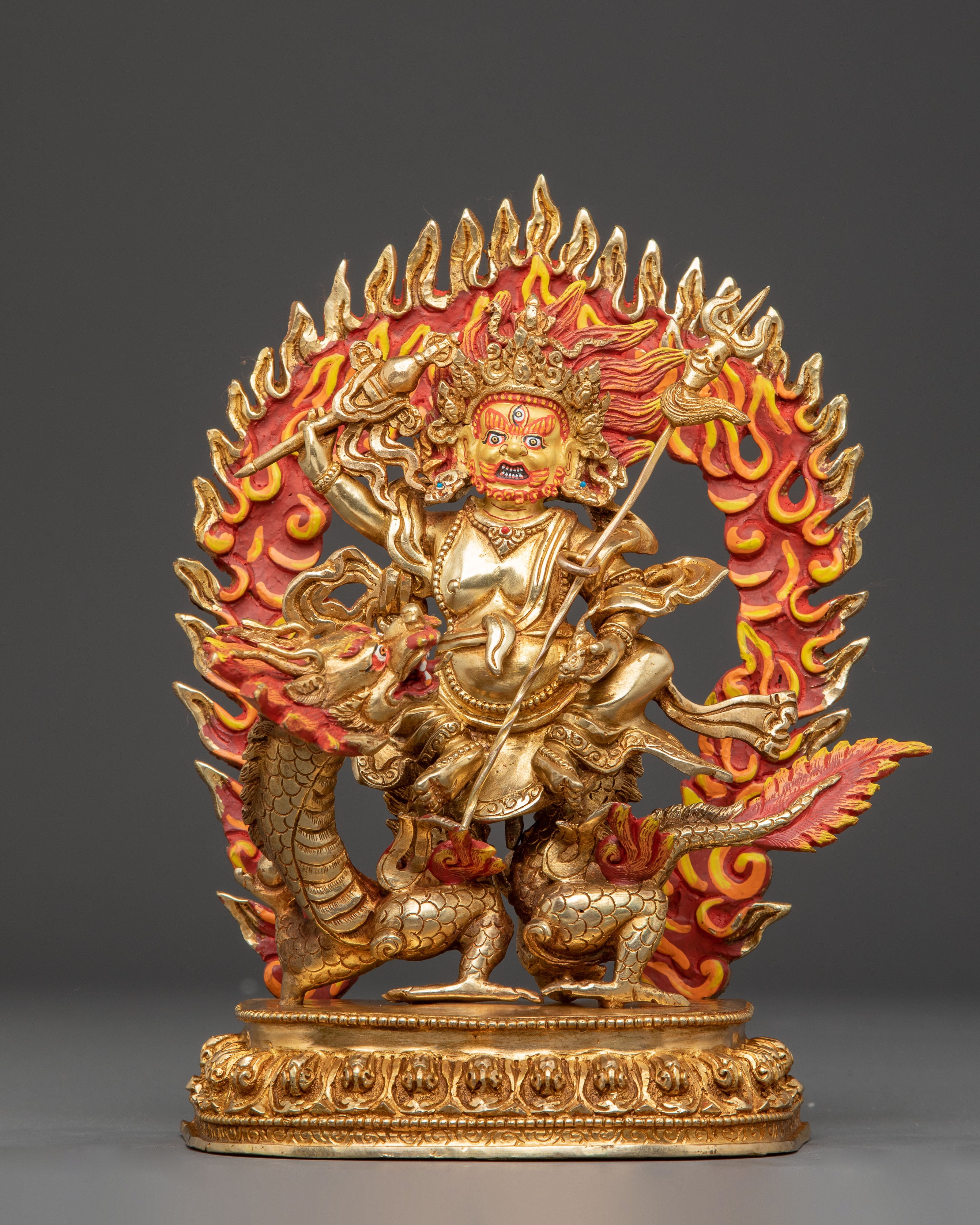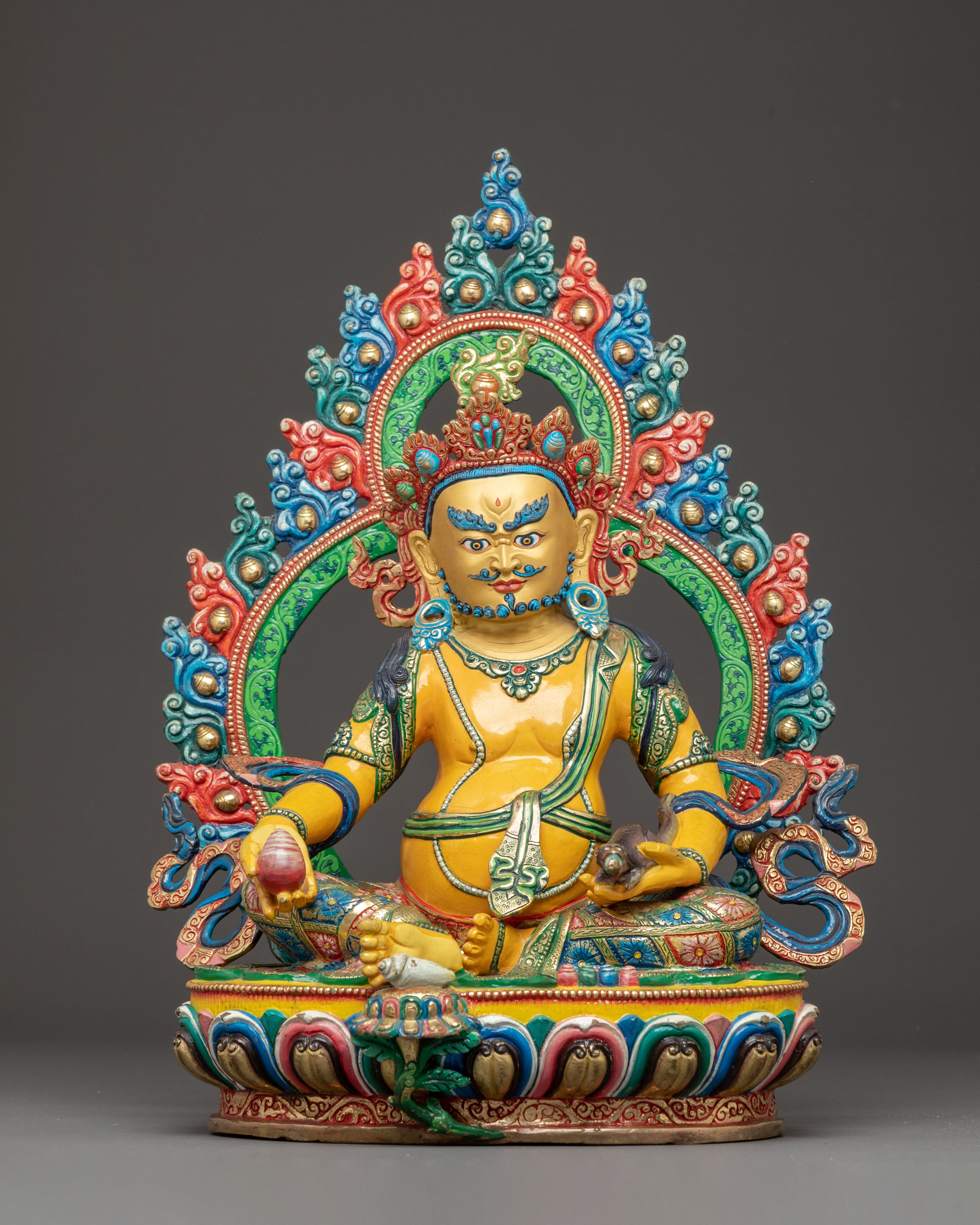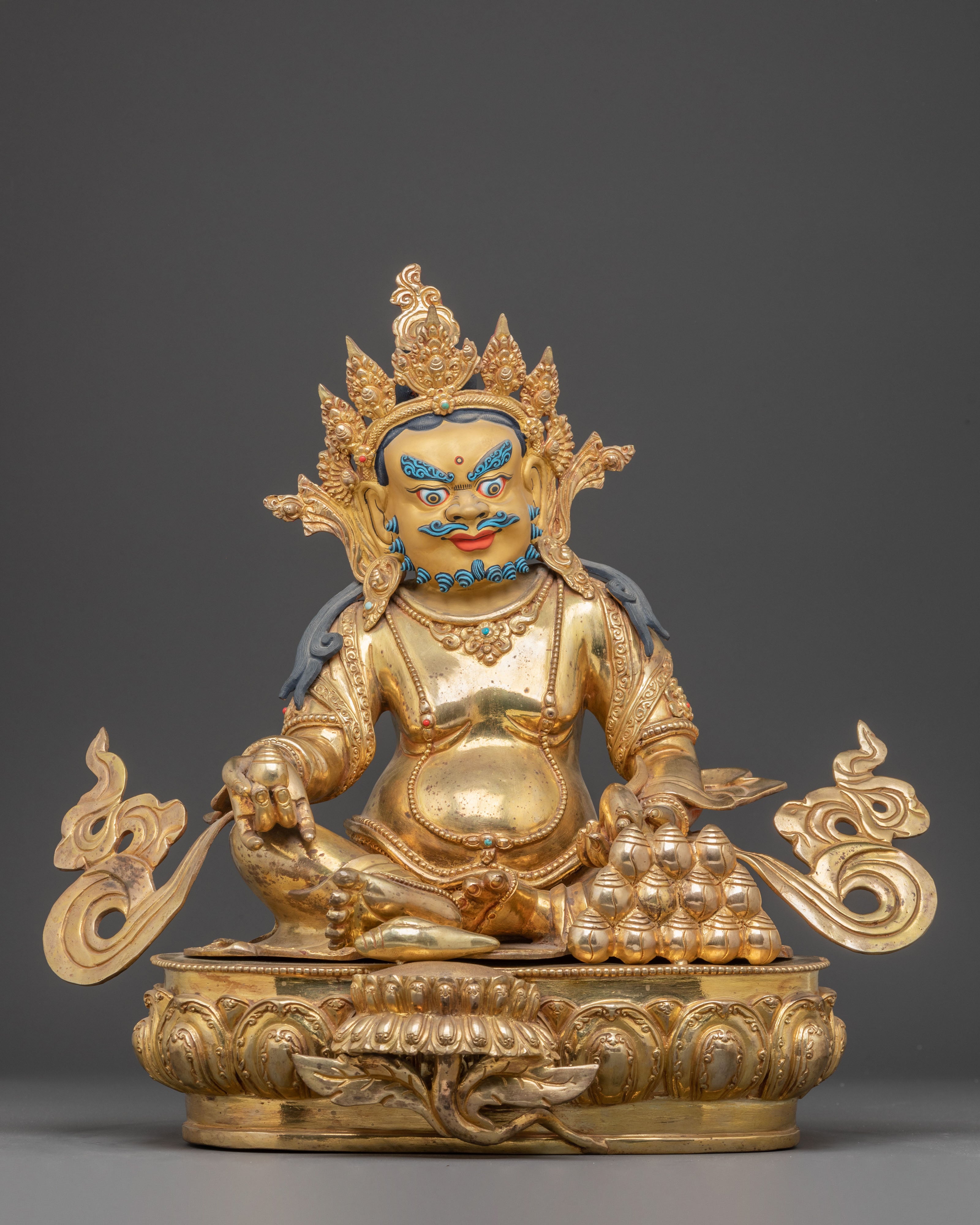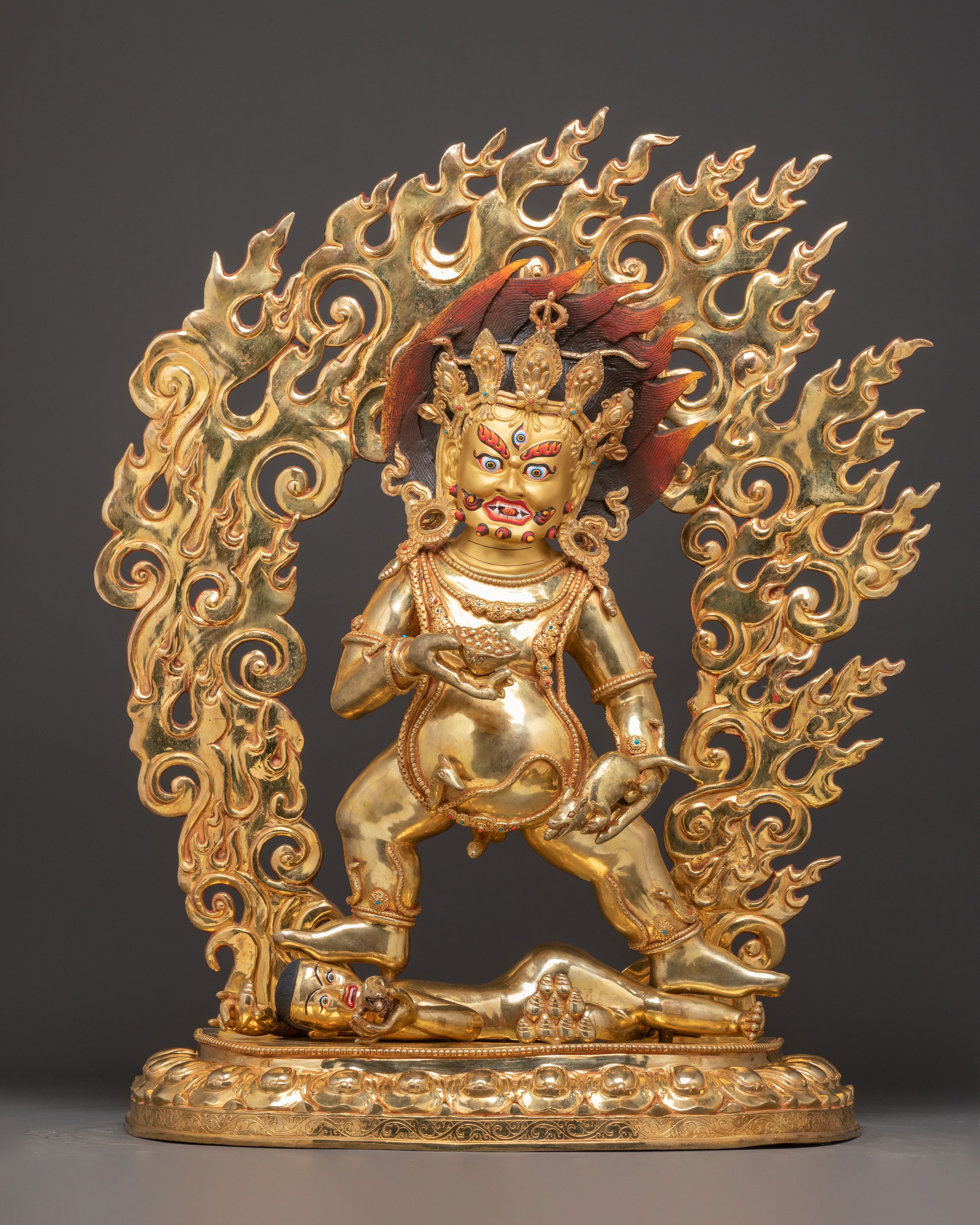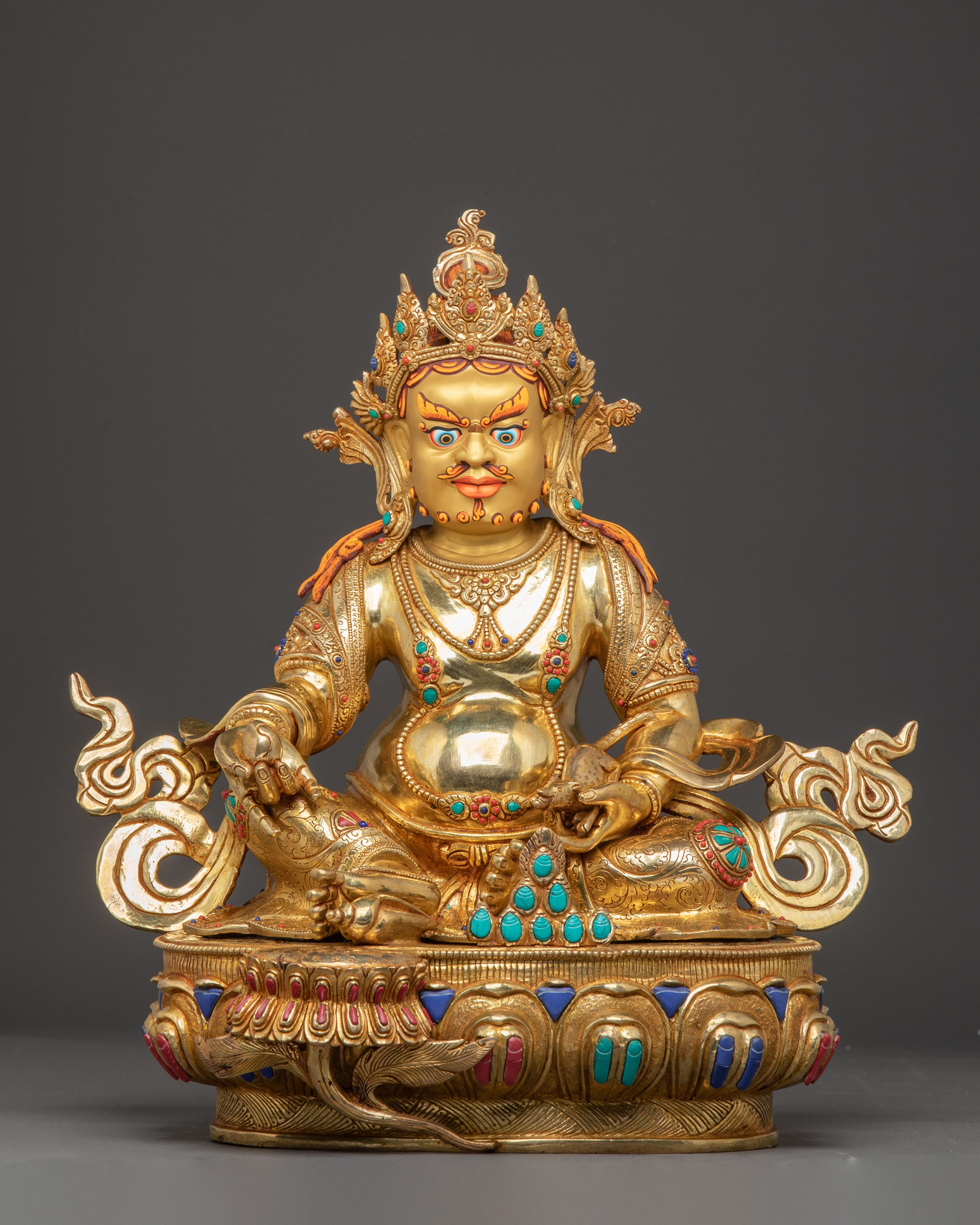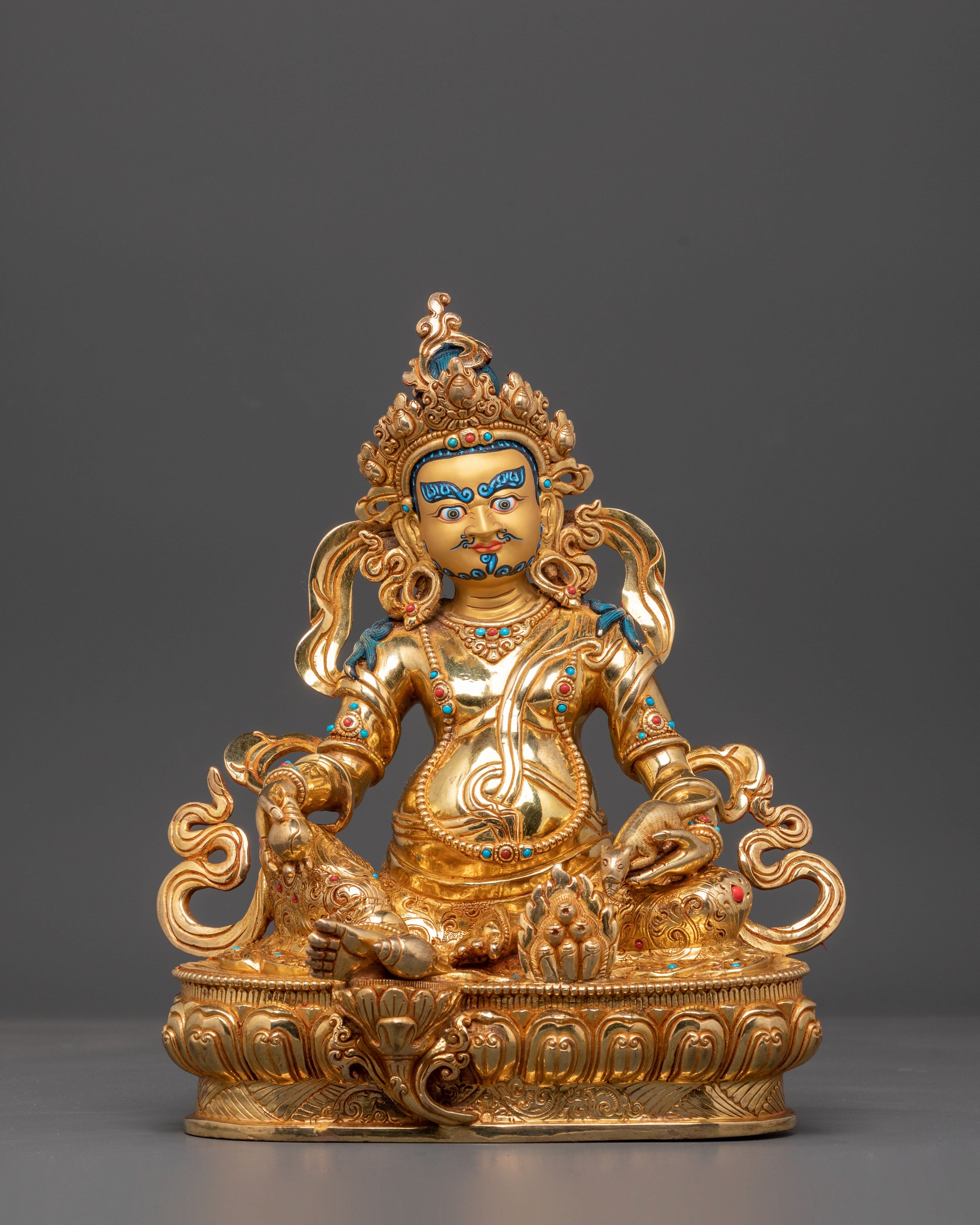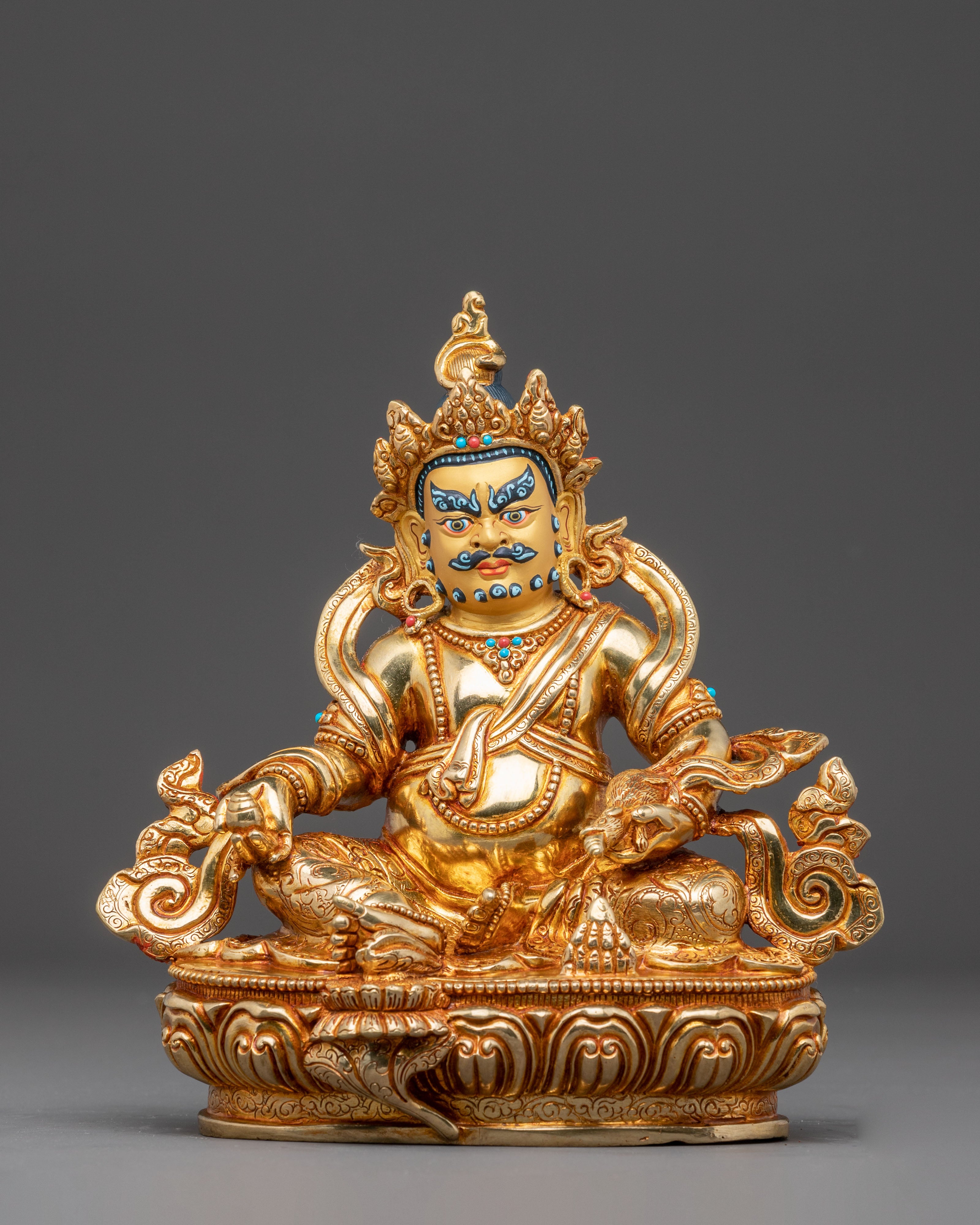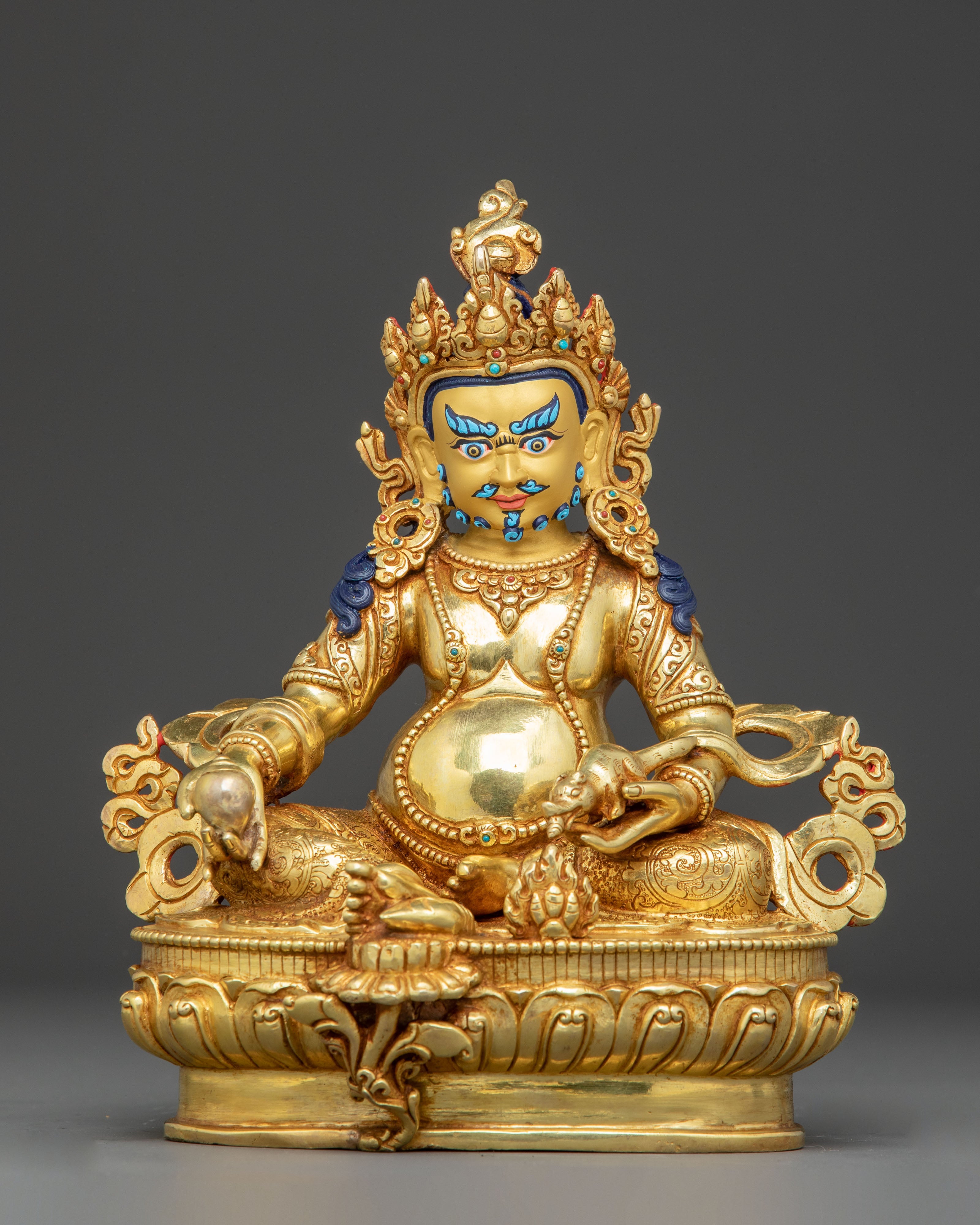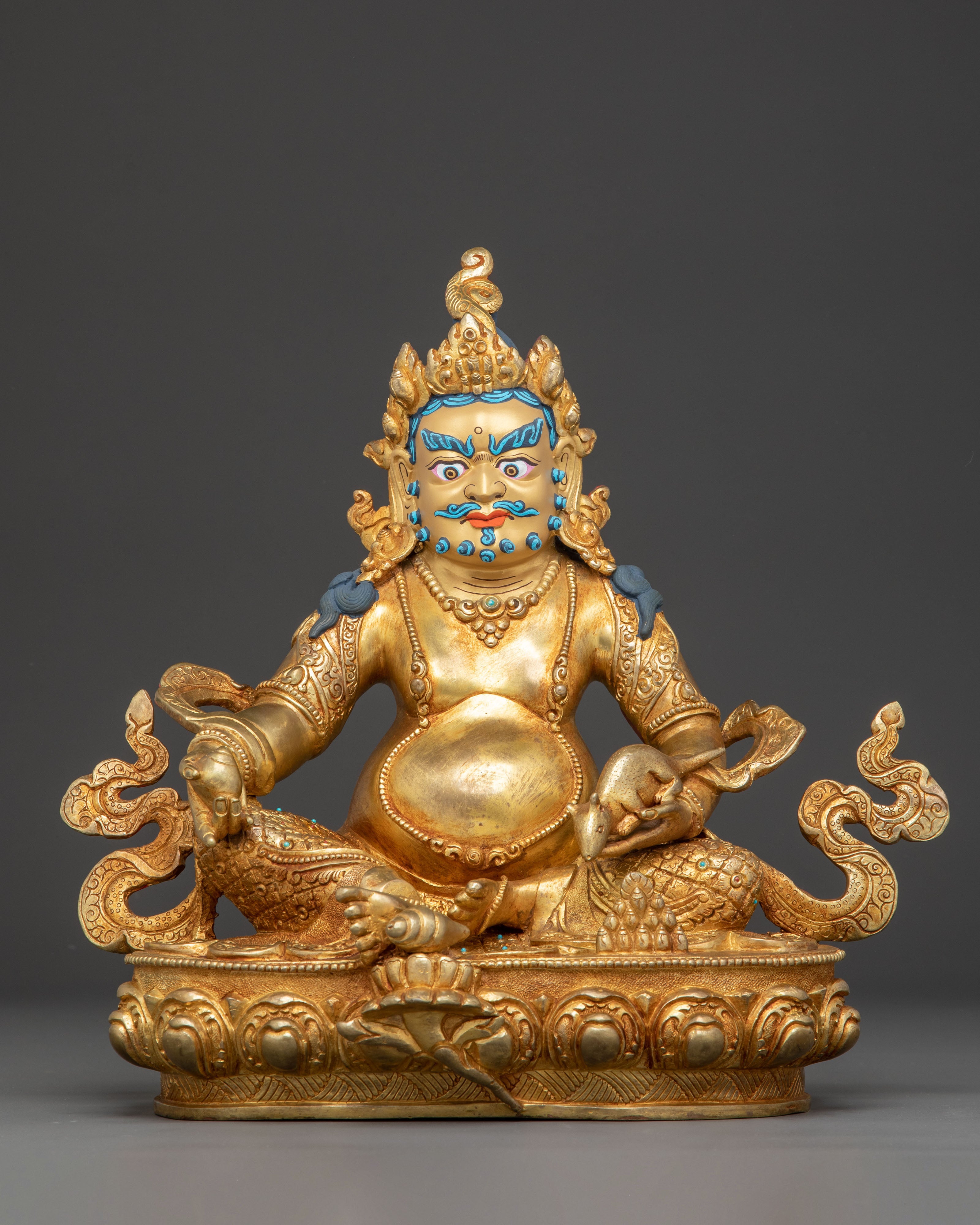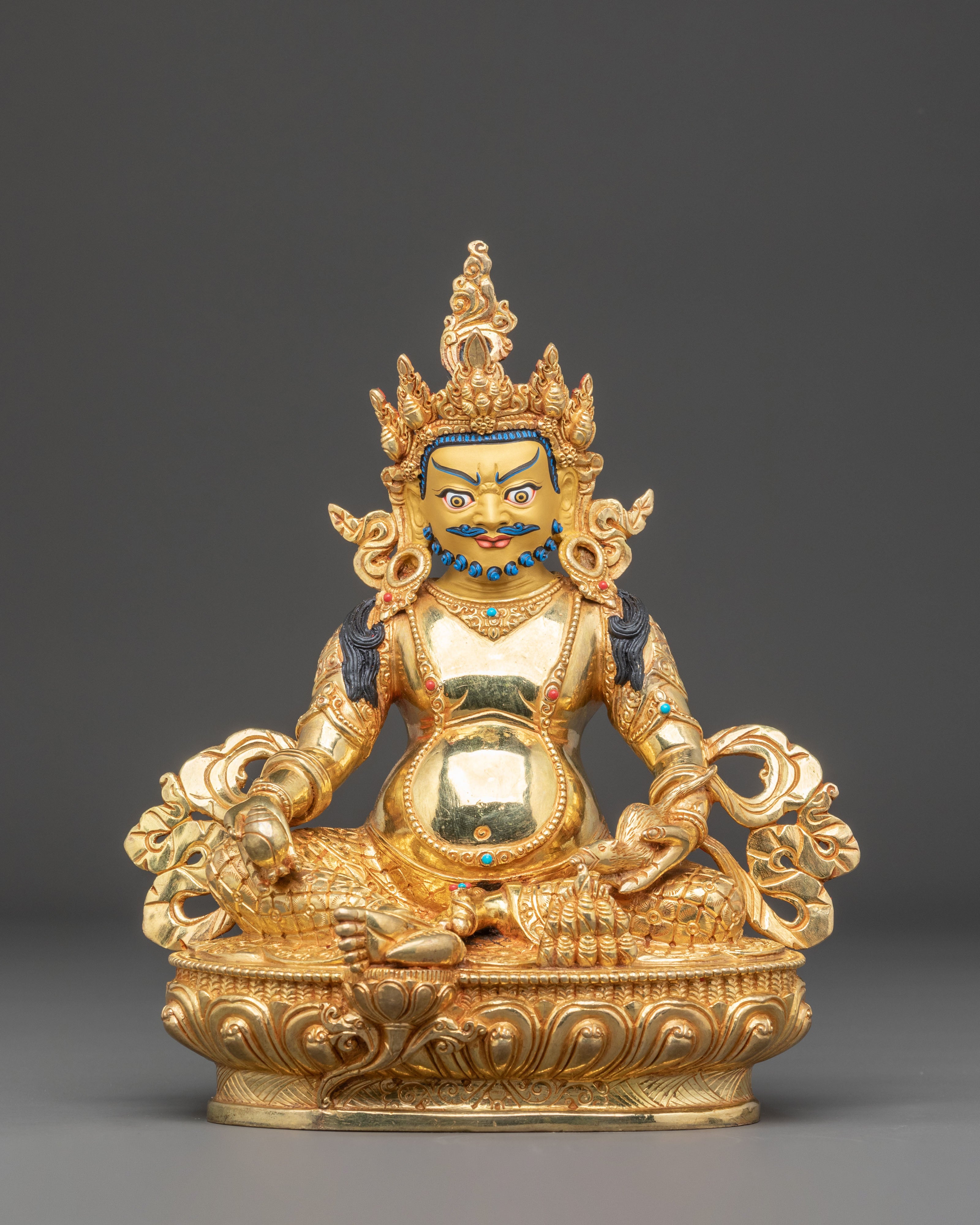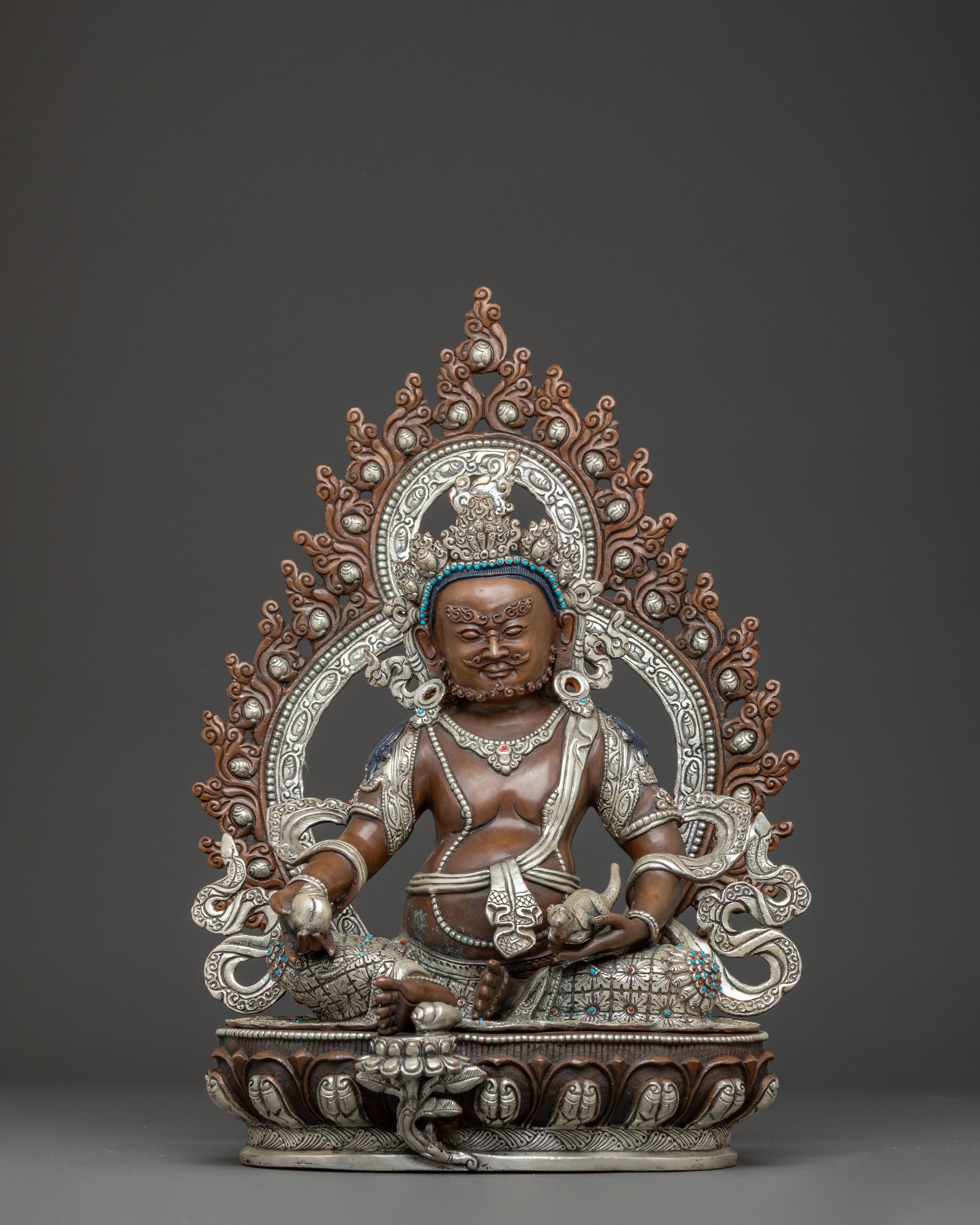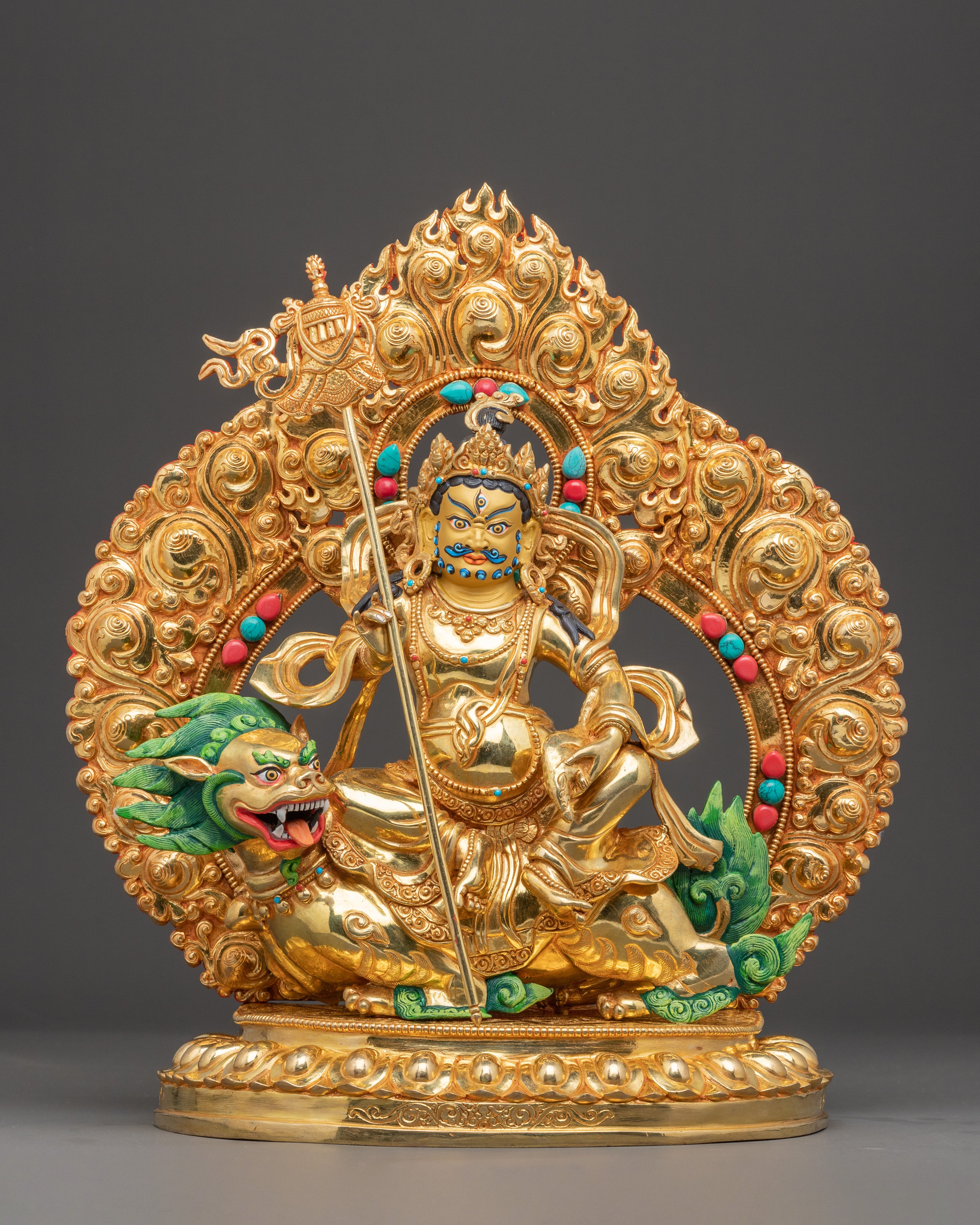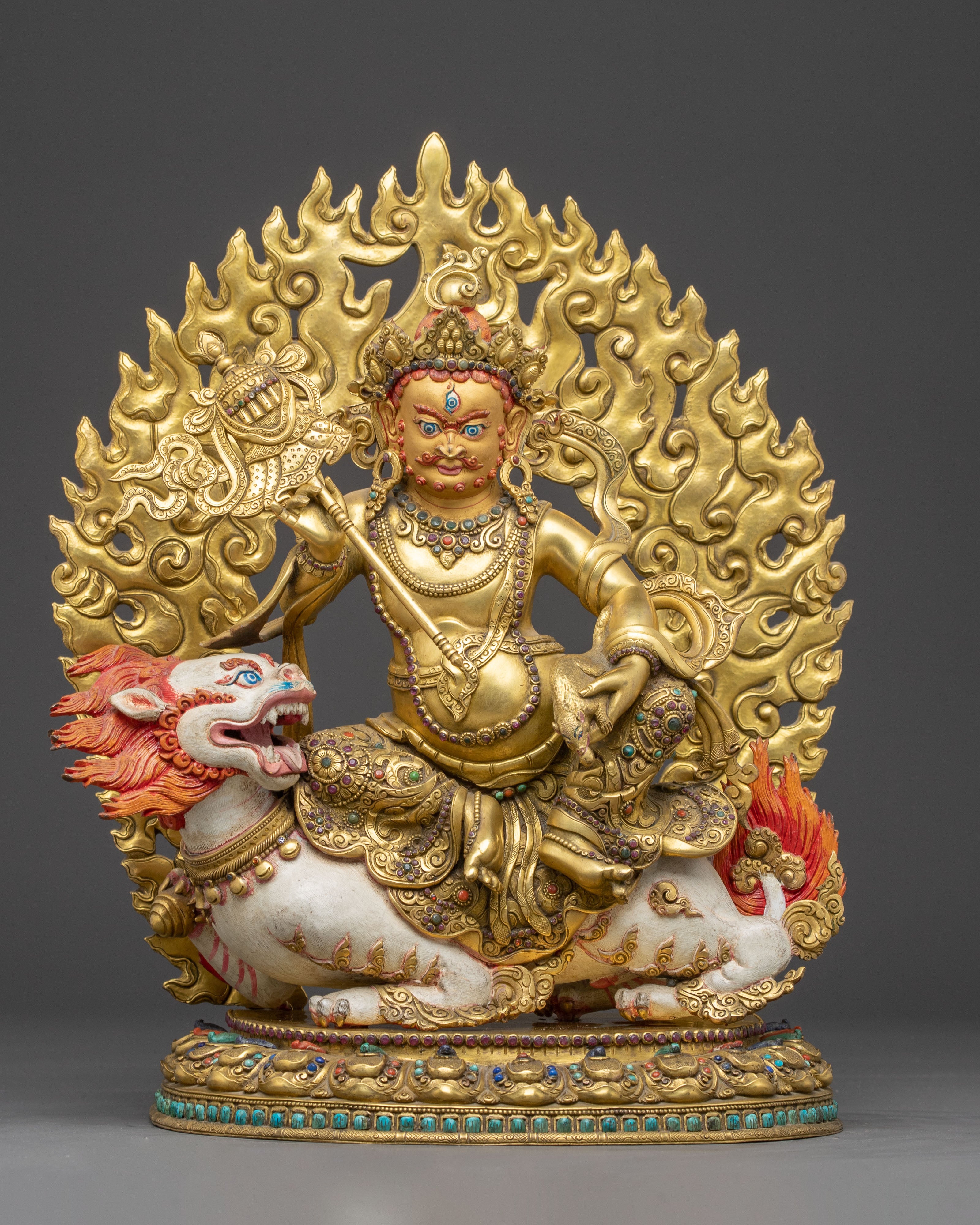Wealth Deities Statue Collection
573 products
Showing 1 - 24 of 573 products
Wealth Deities in Buddhism: Manifest Prosperity and Abundance
Background and Significance:
Wealth deities in Vajrayana Buddhism are divine beings who embody the energy of abundance, generosity, and material and spiritual prosperity. They help practitioners overcome scarcity and obstacles while inspiring generosity and the flow of blessings.
Our Wealth Deities Statue Collection – Authentic Treasures from Nepal
1. Jambala
The principal Buddhist deity of wealth and prosperity, Jambala is often depicted holding a mongoose that spits jewels, symbolizing generosity and abundance. His blessings support wealth creation and removal of poverty.
2. The Five Forms of Jambala
Representing different aspects and colors—Yellow, White, Black, Green, and Red Jambala—each form carries unique powers to attract wealth, protect resources, and overcome specific obstacles.
3. White Mahakala
While primarily a protector deity, White Mahakala is also invoked for wealth and good fortune, balancing fierce protection with auspicious blessings.
4. Vasudhara
The goddess of wealth, fertility, and prosperity, Vasudhara is depicted with overflowing jewels and grains, symbolizing abundance in all aspects of life.
5. Namtoshe
A lesser-known yet powerful wealth deity, Namtoshe supports the accumulation of resources and spiritual prosperity.
Who Should Buy Wealth Deities Statues?
-
Practitioners seeking to manifest prosperity and remove financial obstacles.
-
Collectors of authentic Himalayan sacred art.
-
Devotees of Vajrayana Buddhism wishing to enhance their spiritual wealth practices.
-
Anyone desiring to invite auspicious abundance and protection into their home or sacred space.
Explore Our Wealth Deities Statue Collection Today
Manifest prosperity and spiritual abundance with our authentic Nepalese statues of Jambala, the Five Forms of Jambala, White Mahakala, Vasudhara, Namtoshe, and more. Each piece is a sacred treasure for your spiritual journey.

